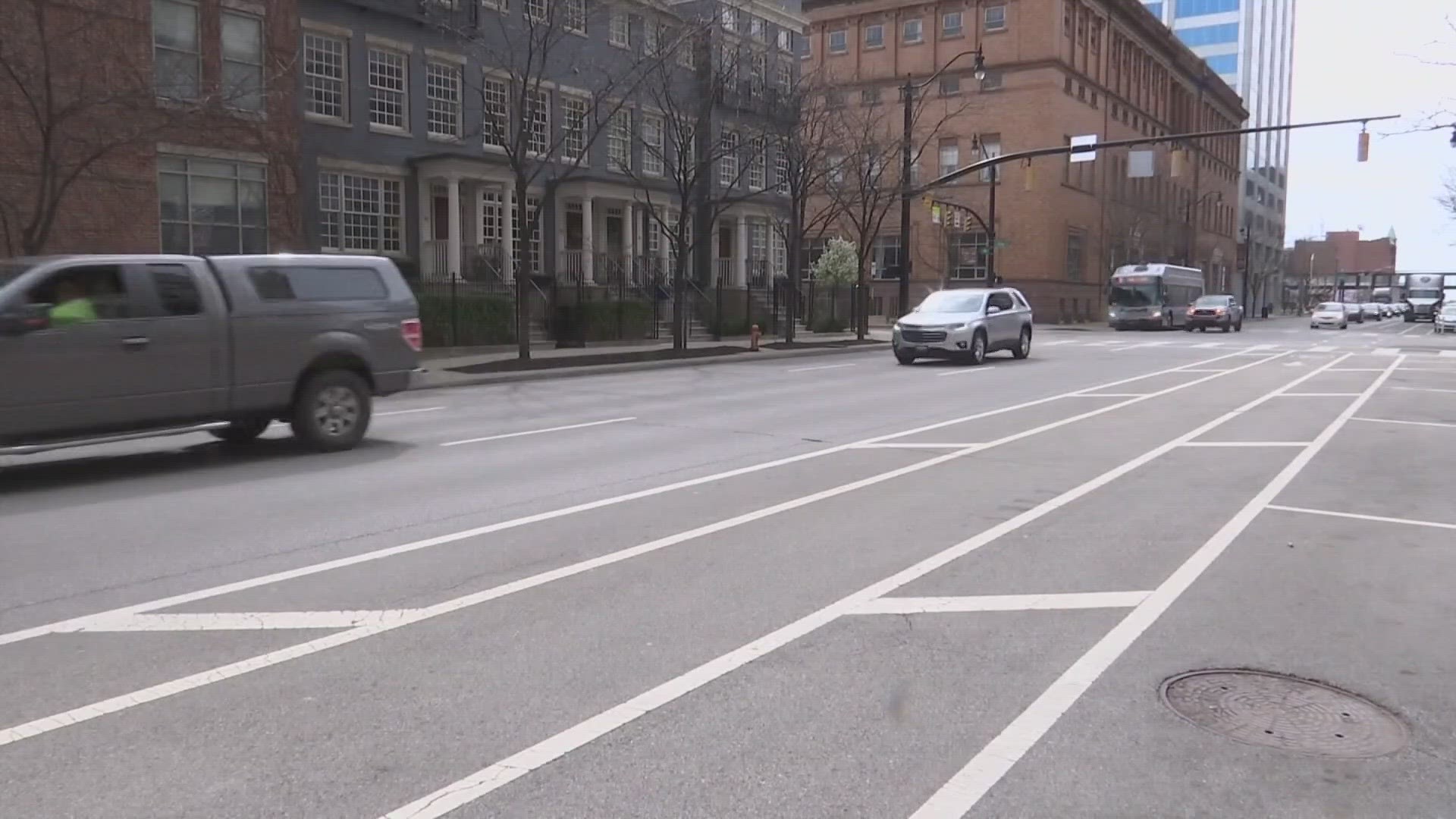COLUMBUS, Ohio — Depending on how long a stressful a commute is, many drivers might have honked their horns or said a few choice words on their drives to work.
Law enforcement officials in Ohio say they have seen more incidents where people actually take that anger further.
The Ohio State Highway Patrol's Office defines road rage in part as "any actions that put life or property in danger."
According to OSHP, from 2018 to 2020, there were just over 1,700 road rage incidents each year. In 2021 and 2022, the state had more than 2,000 a year.
"We don’t know why road rage occurs or why drivers you know, get aggravated, or what causes that to trigger,” said Ohio State Highway Patrol Lieutenant Nathan Dennis.
Getting at the root of what might trigger a person to get angry and act on that anger isn’t too much of a stretch for mental health professionals though.
"People who engage in road rage more likely than not have a general anger problem,” said The Ohio State University professor and psychologist Emil Coccaro.
Coccaro said people who feed their anger by engaging others on the road are not really helping their overall health.
"People with anger issues, who have regular anger issues will have somewhat elevated inflammatory markers, and they don’t need to be very high to have cardiac effects or other kinds of effects. So, it’s best not to be angry in a chronic sort of way.”
He said people with those anger issues are predisposed to assuming someone’s negative behavior is a personal attack on them.
Avoiding road rage is as easy as not taking anyone’s actions towards you on the road personally.
“How angry you get depends on what think,” Coccaro said.
"It's unlikely that it’s personally directed at you in a road rage situation because people can't really see each other in the cars, and also they’re not likely to know you.”
He says if someone often finds themselves having a blowup, cutting someone off in response to being cut off, actually rolling down their window and engaging with another person negatively, it’s a good idea to talk to a mental health professional.
“People can get angry, I’m not saying people should never get angry. Its really an issue of how often it happens and what are the consequences.”
“You don’t know where it’s going to go. You don’t know if they have a gun if they have a weapon, so it’s just best to you know, calm down.”
OSHP officials advise that people do not engage if they encounter someone that is trying to start something with them on the road.
They also noted that if there is a police station close to where drivers are at the time of a possible road rage incident, to drive to that police station while talking to 911 if possible.

